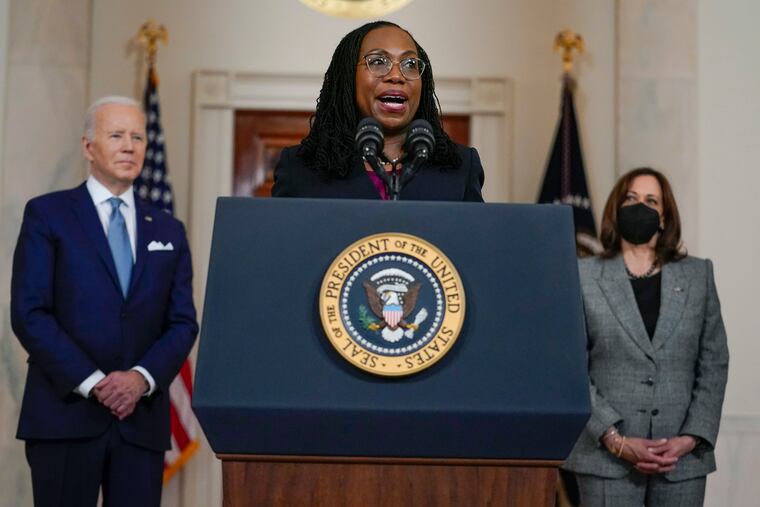As a teen born to immigrants, Biden’s SCOTUS pick tells me I belong | Opinion
I didn’t fit in with Trump’s vision for America. President Biden’s Supreme Court nominee changes that.

Last month, President Joe Biden nominated the first Black woman, Ketanji Brown Jackson, to the U.S. Supreme Court.
Even before announcing his pick, Biden committed to nominating a Black woman, which sparked a conversation about the role diversity plays on a political level. Conservatives have criticized Biden’s choice; the Wall Street Journal editorial board argued that it “elevates skin color over qualifications.” Sen. Ted Cruz went so far as to say the nomination is “an insult to Black women.”
I was 10 years old during the 2016 presidential elections, and while my name wasn’t on a ballot, my future certainly was. While there were several parts of the Trump administration that upset me, it was the racism he fostered that affected me the most. When I look back on those four years, I think of his embrace of anti-immigrant rhetoric, his response to white supremacy (“very fine people”), his spreading of the “birther” conspiracy, and his use of social media to escalate racist rhetoric.
» READ MORE: Biden’s Supreme Court pick offers lessons on representation for Pa. judiciary | Opinion
As the daughter of immigrants from India, hearing these comments from our president reinforced my growing cynicism of the American dream, along with its promise of fairness. While Donald Trump’s MAGA campaign promised to “bind the wounds of division,” his negative messaging undermined the hard-earned sense of equality that I was developing as an Asian American teen growing up in a primarily white community. Indeed, an FBI report found that hate crimes surged by nearly 20% under his presidency.
It became clear from the beginning of Biden’s presidency that he intended to run things differently. We saw his willingness to open up positions of power to people of color when he chose Kamala Harris to be his running mate, making her the first woman and the first woman of color to serve as vice president.
The historically diverse Biden administration is a win for representation on many levels. It modernizes an institution that was stubbornly composed of white men. It sets higher standards for the diversity of perspectives that should be present in any given setting. Most importantly, it signifies that his administration is willing to listen to all voices from the American public. This level of representation was powerful enough to get me interested in my government. Seeing myself represented on the political level empowered me to recognize my potential, and how my voice can hold the Biden administration accountable.
“Seeing myself represented on the political level empowered me to recognize my potential, and how my voice can hold the Biden administration accountable.”
Biden’s decision to appoint a Black woman to the highest judicial level of the United States can reshape the federal judiciary, especially in a time of racial reckoning going on in our country. It’s actually groundbreaking, considering how Black women account for fewer than 2% of the people who have ever served as a federal judge. If Biden’s nominee joins the Supreme Court, she would be its third-ever Black justice, and only the sixth woman in its history.
To be sure, not all Republicans have opposed Biden’s decision to diversify the Supreme Court. Sen. Lindsey Graham, for one, said he supported it: “Put me in the camp of making sure the court and other institutions look like America.” I agree. The court should look like the future of America, a future in which all groups are represented equally.
Trump believed that the way to “make America great again” was through a presidency that enforced polarization through racism, something that made people like me feel excluded from the promise of the American dream. Biden’s emphasis on diversity makes me confident enough to write myself back into the narrative.
Sriya Tallapragada is a freshman from the Pingry School in Basking Ridge, N.J.